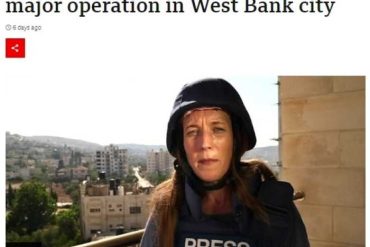The BBC World Service’s weekly radio show ‘Boston Calling’ focuses on American issues and its December 12th edition included an item concerning the drought in California which can be found from 18:19 here or in an abridged version here.
That report is about “one immigrant [Israeli] farmer in California who’s brought a few lessons from his homeland” concerning water conservation and it is introduced by presenter Carol Hills as follows:
“To California: the state produces half of America’s fruit, nuts and vegetables. It’s also heading into its fifth year of drought. So California is looking at ways to be more efficient with its water. Maybe it should look at Israel.”
However, listeners to this otherwise interesting item are not informed that California understood some time ago that it “should look at Israel”.
“In an agreement signed earlier in September, LA County will work with Israel to study Israeli water technology, seeking the most appropriate systems to be used in the county to conserve water resources.
“The technology Israel has developed and employed to stretch its meager water resources is truly impressive,” said LA County Supervisor Sheila Kuehl. “I look forward to working together on ways that Los Angeles County can benefit from their work on technology and research concerning point of reuse, recycling and groundwater recharge. ” […]
In March 2014, Prime Minister Benjamin Netanyahu signed a deal with California Governor Jerry Brown to export Israeli desalination, water recovery and recycling, water filtration, and water security technology to the state.”
The results of collaboration are already evident on the ground.
“Israeli water sector giant IDE Technologies dedicated the largest desalination plant in the Western Hemisphere on Monday – a facility that will produce some 190 million liters of water daily for the residents of southern California.
Providing a new source of water in a state that has long suffered severe droughts, the Claude “Bud” Lewis Carlsbad Desalination Plant will be quenching the thirst of roughly 10 percent of San Diego County, according to IDE. Employing advanced pretreatment and seawater reverse osmosis technologies, the plant is able to generate potable water of the highest quality while significantly reducing energy consumption, the company explained.”
Given the BBC’s keen interest in reporting on environmental issues, one would have thought that it would be capable of providing audiences with an up to date report on this topic.




